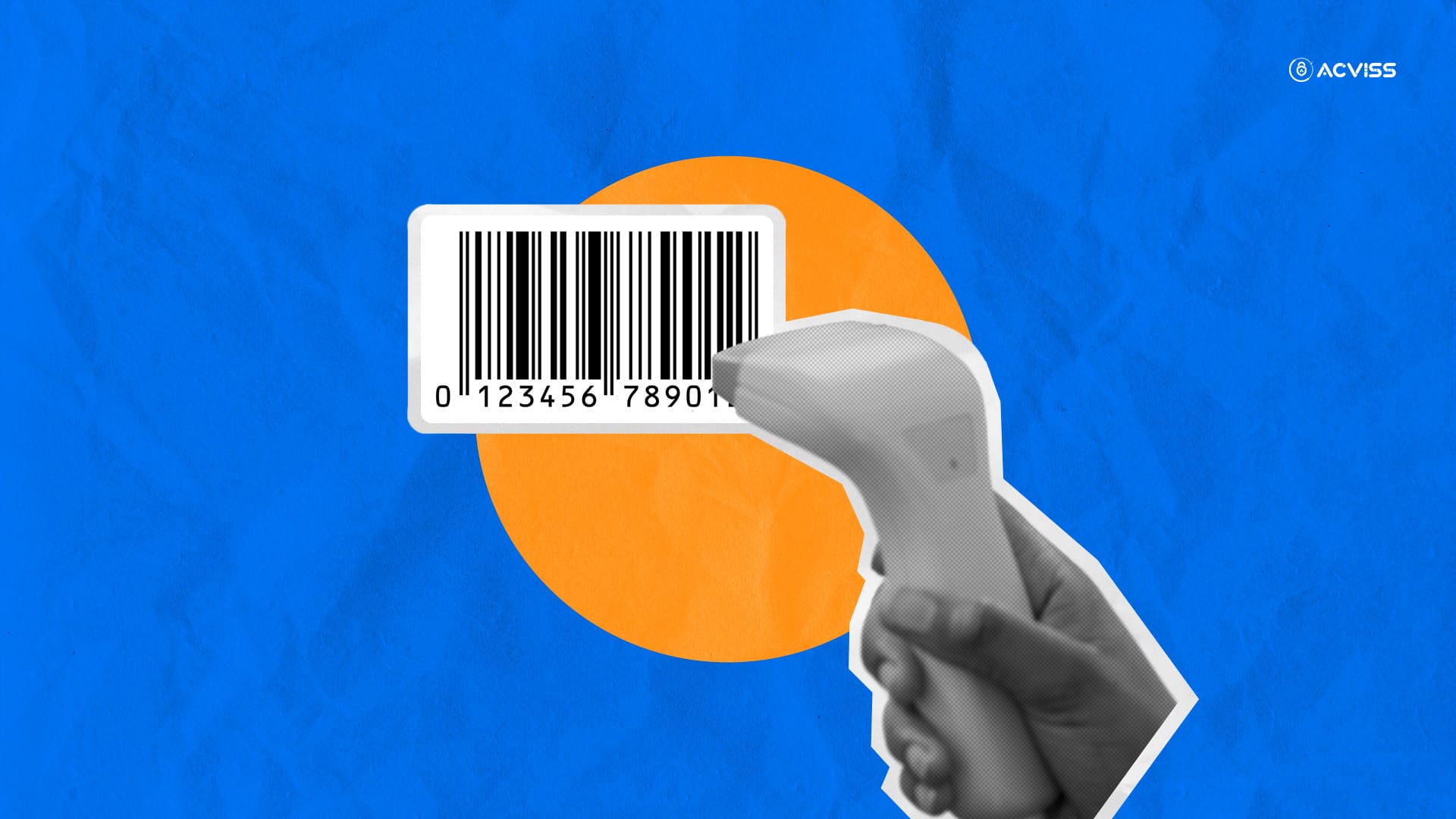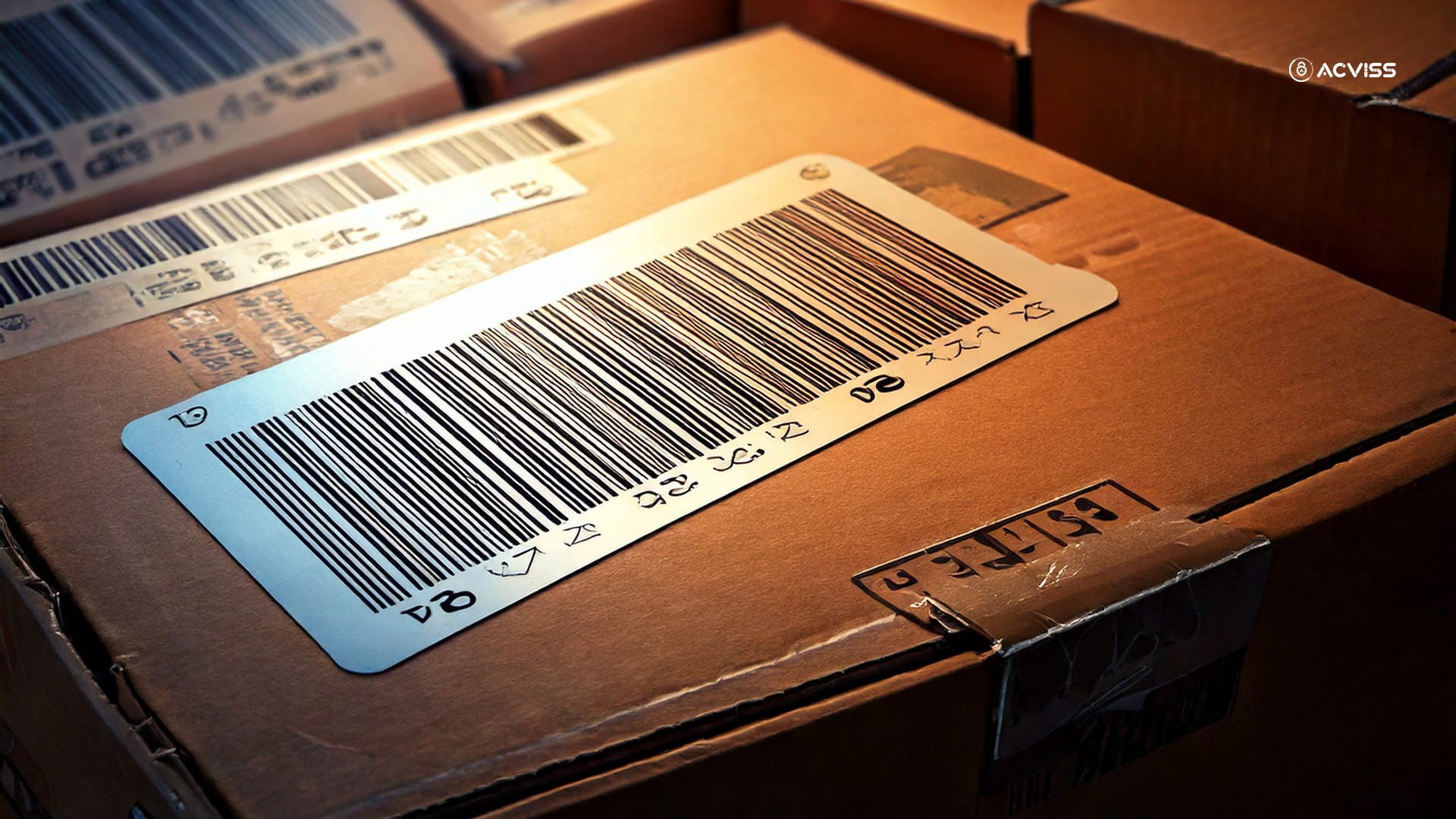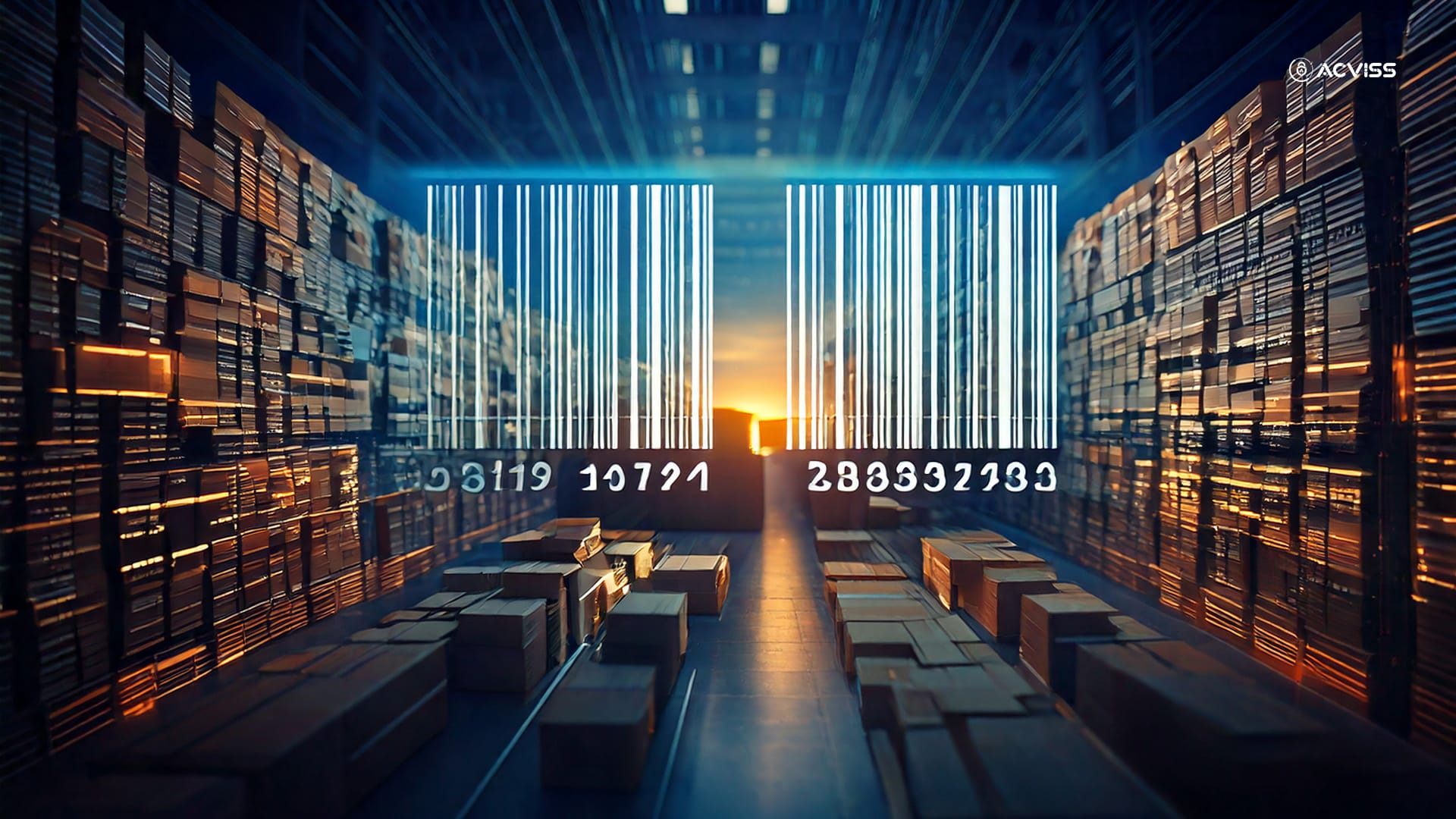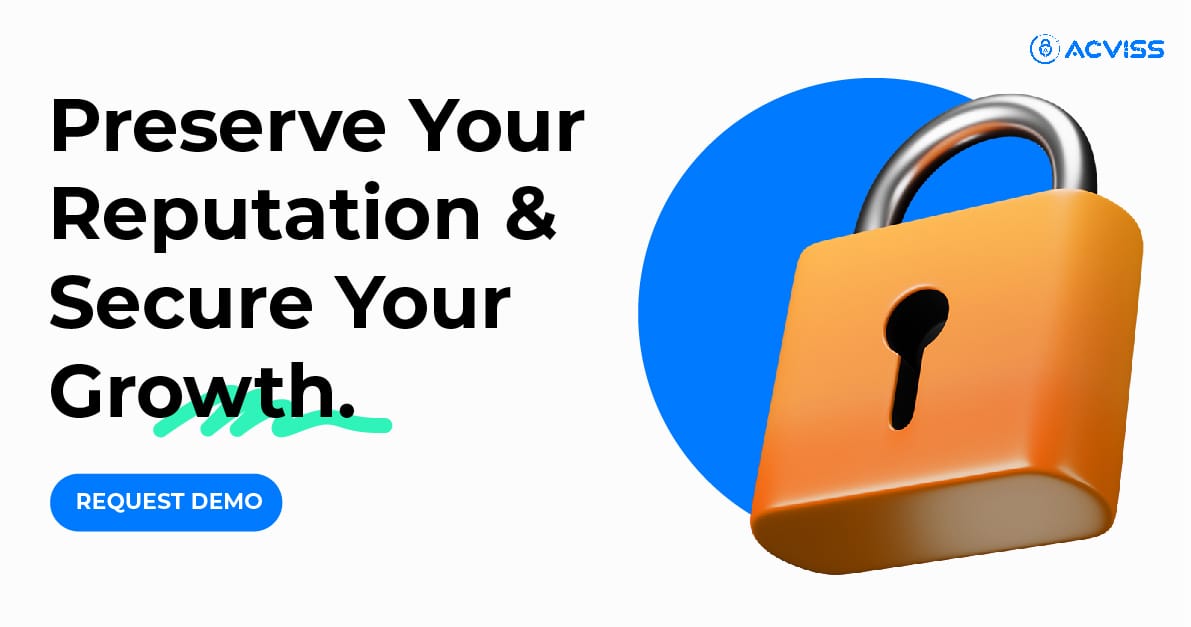The Importance of Serial Numbers, Batch Numbers, and Barcodes in Regulatory Environments

Did you know that a single missing label on a medical product might put people's lives in danger? Mylan Pharmaceuticals Inc. recently ordered a countrywide recall of Insulin Glargine owing to missing labelling. This mix-up might lead to extraordinarily high or low blood sugar levels for those who take various types of insulin. It could cause major health issues. Despite the lack of known negative consequences, this case highlights a significant problem: insufficient traceability leading to non-compliance.
In industries including manufacturing, food, and medicine, compliance ensures product legitimacy, guards against fraud, and safeguards the public's health in addition to merely abiding by the law. Companies that break the rules run the danger of fines, recalls, and reputational damage.
In this article, we will look at how serial numbers, batch numbers, and barcodes play an important part in compliance. These solutions not only improve product traceability, but also combat counterfeiting, safeguard customers, and guarantee that firms follow legal requirements.
Understanding Regulatory Compliance in Different Industries
“Adherence to rules is the foundation of a safe and moral business.”
It is not merely a legal need. But why is it so important? And how does it influence several fields? Let us examine the importance of compliance and how it affects key sectors:
Why Compliance Matters?
Legal obligations provide a protective barrier that keeps the customers safe. It also ensures that businesses operate responsibly while minimising risks. Here's how.
- Protecting business and customers: Being compliant safeguards private information through cybersecurity rules and mitigating workplace dangers. It contributes to a secure organisational environment.
- Avoiding financial and legal pitfalls: Noncompliance can result in litigation, large fines, and even licence revocations. It disrupts the company and lowers income.
- Enhancing brand reputation: Trust is everything. Following legal guidelines reassures customers and partners, therefore increasing credibility.
- Increasing profitability: A solid enforcement strategy reduces risks and litigation expenditures. This leads to better financial results.
Now that we have established why compliance is important, let us look at the fields where it plays a key role.
Key Sectors Affected by Compliance Regulations
The extent of regulatory monitoring varies by industry. Some, owing to the nature of their business, have tighter compliance standards. Which industry has been the most affected?
- Pharmaceuticals: How can we ensure that drugs are safe? Conformity with FDA clearances and Good Manufacturing Practices (GMP) ensures product safety and efficacy.
- Food & beverage: What makes our food safe? Regulations such as the FDA's Food Safety Modernisation Act (FSMA) prevent contamination and protect public health.
- Electricals: Did you know that dangerous compounds in electronics are regulated? Standards such as the Restriction of Hazardous Substances (RoHS) regulate the use of harmful compounds in electronic equipment.
- Automotive: How can automakers guarantee responsible sourcing? Regulations like the European Union Deforestation Regulation (EUDR) help to enhance supply chain sustainability.
- Consumer Goods: Are everyday items safe? Laws such as the Consumer Product Safety Act impose safety and quality requirements.
- Financial services: What stops economic fraud? Anti-money laundering legislation helps prevent fraud and protect customers.
- Healthcare: How is patient data protected? Compliance with HIPAA guarantees that medical records are secure and confidential.
- Retail: What safeguards customers against unethical practices? Data privacy and consumer protection regulations ensure fair business practices.
- Technology: Are tech corporations accountable? Cybersecurity and data privacy regulations ensure ethical digital activities.
- Transportation & Logistics: How do worldwide trade restrictions affect shipping? Compliance with international commerce and safety rules minimises interruptions and legal difficulties.
So, what happens if firms fail to follow the rules?
Repercussions of failing to comply with the rules:
- Fines & Penalties: Did you know that breaking GDPR may cost an enterprise up to 4% of its global revenue?
- Legal Action and Imprisonment: Serious breaches can result in litigation and even jail sentences for CEOs.
- Reputational Damage: Once trust is ruined, regaining client confidence is a difficult task.
- Operational Disruptions: Cybersecurity breaches and observance failures can disrupt corporate operations. It can result in significant losses.
- Revenue Loss: The financial burden of court settlements and penalties can ruin a company.
Being compliant is now essential in a world where regulations are constantly changing. Businesses that proactively enforce adherence procedures avoid legal concerns. It also creates stronger relationships with clients and partners.
What Are Serial Numbers, Batch Numbers, and Barcodes?

Trustworthy product tracking is indispensable in the fast-paced supply networks of today. Businesses use structured identification systems for inventory management, product legitimacy, and recall management. Barcodes, batch numbers, and serial numbers are three essential components that are essential to this procedure.
Let’s see how they function and what makes them so crucial:
1. Serial numbers
These are unique codes provided for individual items that allow firms to monitor and manage products.
Why is it important?
- To verify the authenticity of products to avoid counterfeiting.
- To allow warranty tracking for repairs and replacements.
- To assist with after-sales services and product recalls.
Serial numbers are used in areas such as electronics and vehicle manufacturing to verify product integrity.
2. Batch Numbers
They classify things made under similar conditions. It enables organisations to monitor manufacturing quality.
Why Are These Important?
- To assist in identifying problematic batches for quality control.
- To make product recalls easier, reduce the number of impacted goods.
- To ensureregulatory compliance in sectors such as medicines and food.
For example, a batch number can immediately identify tainted food without impacting unaffected items.
3. Barcodes
They encode product information, making tracking faster and more effective.
How Can They Improve Product Management?
- It facilitates faster scanning and reduces human entry mistakes.
- It supports bulk tracking across warehouses and retail outlets.
- It improves logistics efficiency by simplifying processes.
Barcodes exist in a variety of formats, including 1D barcodes for sale and 2D QR codes for holding more complicated data.
In brief, serial numbers identify individual items, batch numbers provide quality control, and barcodes make tracking easier. When combined, they offer a simplified identification system that enhances managing products and distribution system reliability.
The Role of Serial Numbers, Batch Numbers, and Barcodes in Compliance

Given the increase in fake goods, companies require a strong system to guarantee supply chain compliance, safety, and authenticity. Serial numbers, batch numbers, and barcodes are crucial in doing this. They let firms track merchandise, comply with industry laws, and avoid fraud. But how can they contribute to compliance? Let us break it down.
1. Traceability and Accountability
Every product has a journey, beginning with manufacture and ending with the customer. Without a systematic monitoring system, finding faults recalls, or counterfeit merchandise is practically difficult. This is how unique product identification numbers function.
- They allow for fast scanning and mass tracking. It helps firms manage their inventory more effectively.
- They give a unique identifier for each product, ensuring exact traceability.
- They connect groups of goods to their manufacturing data, which is critical for quality control and safety. It aids in the detection and removal of tainted items before they cause widespread damage.
For example, in the pharmaceutical industry, tracking each drug’s serial number ensures that if an issue arises, only the affected products are recalled instead of pulling entire stockpiles off the shelves. The same applies to food safety. This level of responsibility helps businesses react quickly to issues. It can lower risks and protect clients.
2. Sector-Specific Regulatory Needs
Compliance is a legal obligation in many different businesses and goes beyond simply maintaining records. Product traceability is required by legislation unique to certain industries:
- Drug development: To stop fake medications from reaching the market, the FDA and WHO mandate serialisation. Distinct serial numbers help track the circulation of medications and verify their authenticity.
- Food Industry: To guarantee the quality, FDA, FSSAI, and EU regulations need batch traceability. It is possible to quickly recognise and recall the affected batches in the event of contamination.
- Automobile manufacturing: Vehicle Identification Numbers and barcodes allow manufacturers to find defective parts. This provides accurate and effective safety recalls.
- Consumer gadgets: Codes and serial numbers help detect fake products and authenticate warranties.
Industries preserve adherence, safeguard customers, and preserve brand integrity through the enforcement of these rules.
3. Fraud Prevention
Globally, counterfeit products overtake marketplaces and cost companies a lot of money. Fake electronics, medications, and auto components present major safety risks in addition to reducing sales. In several ways, serial numbers, batch numbers, and barcodes aid in preventing this kind of fraud:
- They reduce illegal resale by authenticating genuine items.
- Digital monitoring and barcodes make it more difficult for fake items to enter supply networks undetected.
- By facilitating the prompt identification of counterfeit goods, unique identifiers shield brands from financial damage.
For instance, a smartphone brand that uses serialised QR codes enables fast authenticity verification for clients. This simple measure dramatically reduces the risk of imitation and boosts client confidence.
4. Efficient Supply Chains
Beyond compliance and fraud prevention, efficient product identification streamlines operations. Here's how it functions in practice:
- Retailers utilise barcodes to scan items quickly at checkout, eliminating human error.
- Manufacturers track manufacturing batches to ensure efficient distribution and quality control.
- Logistics firms increase efficiency by reducing mistakes in shipments and delivery.
Businesses may avoid stock shortages, cut waste, and optimise supply chains by improving inventory visibility.
Complying with rules is only one aspect of regulatory compliance in today's busy marketplaces; another is safeguarding goods, companies, and consumers. Companies can improve accuracy, reduce waste, and preserve a smooth supply chain while staying in compliance with regulations if they have the right monitoring systems in place.
Benefits of Implementing an Effective Product Identification System

Duplicate items, legal challenges, and supply chain inefficiencies all pose problems for businesses, customers, and regulators alike. A strong tracking system can help address these difficulties while also streamlining global trade. How? Let us have a closer look.
a. For businesses
A well-structured authentication system does not merely fulfil rules; it also provides significant operational benefits:
- Reduces compliance risks: Make sure that each item is completely traceable and registered to prevent expensive penalties.
- Enhances inventory control: Lack of supplies and overproduction are lessened with real-time tracking.
- Increases brand trust: Customers rely on product authenticity, and identifying systems assist prevent counterfeiting.
- Streamline logistics: Accurate labelling reduces Mis-shipments, resulting in less costly returns and delays.
b. For consumers
Consumers nowadays want transparency. A clear identifying system makes a difference because:
- Authenticity: Before purchasing a product, buyers may check to see if it is real.
- Providing warranty and support access: Faster claims and repairs when product information is easily verified.
c. For regulators
Government bodies and business regulators use standardised IDs to:
- Reduce fraudulent activities: Easy tracking discourages illegal behaviour.
- Improve recall management: Defective or hazardous items may be eliminated quickly without impacting the whole market.
d. For global trade and market expansion
Cross-border trade presents problems, but product IDs enable enterprises to negotiate them smoothly:
- Streamlines compliance with foreign regulations: Avoids expensive delays at customs.
- Reduces delays and rejections: Missing identifying data might result in cargo rejections; standardised methods avoid this.
- Increases confidence among distributors: Global partners prefer to collaborate with businesses that assure product authenticity and traceability.
A well-regulated product identification system is more than a need for increasing efficiency and safeguarding customers; it is a strategic advantage.
Challenges in Implementing Serial Numbers, Batch Numbers, and Barcodes

Serialisation in logistics management is essential to verify authenticity and combat imitation. However, organisations encounter several problems in efficiently integrating these systems.
1. Integration Issues
Ensuring that serialisation technology works seamlessly with existing supply chain software is a significant challenge. Many firms employ outdated systems, which may not be compatible with contemporary tracking solutions. Compatibility concerns might cause:
- Disruptions in data flow between departments.
- Incorrect inventory tracking.
- Increased implementation time and expense.
A well-thought-out integration strategy, with compatible software solutions, may help firms overcome these obstacles.
2. Data Management
Managing a large quantity of serialised data necessitates secure and efficient management. Inadequate systems may cause
- Slow data processing and operational delays.
- Cyber attacks pose a security concern.
- It is difficult to retrieve product history for compliance inspections.
Investing in reliable data storage and cybersecurity measures is critical for protecting and optimising serialisation efforts.
3. Counterfeiters Becoming More Advanced
Although utilising a numerical code and labels, forgers are always evolving. Fake serial numbers and cloned barcodes make it difficult to distinguish between legitimate and counterfeit items. To address this:
- Companies should implement sophisticated authentication mechanisms such as encrypted QR codes.
- Regular audits and AI-powered anomaly detection can aid in detecting fraud attempts.
- Blockchain-based traceability solutions can provide an additional level of security.
4. Cost Considerations
The initial expenditure on serialisation technology might be significant. Businesses need to account for:
- Purchase barcode scanners and tracking software.
- Training employees on new systems.
- Regular maintenance and compliance upgrades.
While the expenses may appear high, a well-implemented serialisation system reduces losses from counterfeit goods, saving money in the long term.
Businesses may fortify their supply chains and improve product security by tackling these concerns using the correct solutions.
Technology-Driven Solutions for Ensuring Compliance
Regulatory compliance is no longer simply about manual inspections; it is about using technology to improve transparency, security, and efficiency. How can corporations accomplish this? By combining cutting-edge technology for fraud detection, product tracking, and customer empowerment.
1. Blockchain for Tamper-Proof Tracking
Maintaining an immutable record of a product's path is critical for regulatory and track and trace capabilities. Blockchain provides:
- Immutable audit trails ensure transparency.
- Decentralised verification prevents unauthorised changes.
- Smart contracts automate compliance procedures while decreasing manual intervention.
2. AI-Powered Fraud Detection
Traditional monitoring methods might fail to detect fraud. AI and machine learning can help:
- Find anomalies in product data.
- Identifying irregularities in supply chain transactions.
- Forecasting can help improve risk management.
3. Smart QR Codes & Non-Cloneable Labels
Consumers have an important role in checking product legitimacy. Brands may:
- Verify products instantly by using unique QR codes.
- Use dynamic, tamper-proof labels to avoid counterfeiting.
- Provide authentication guidance using digital channels.
4. IoT in Supply Chain Monitoring
Real-time visibility assures compliance at all stages. IoT-powered sensors help:
- Monitor product movement and storage conditions.
- Keep track of any unauthorised diversions in the supply chain.
- Automated notifications can help you manage inventories more effectively.
By integrating these technologies, organisations can defend their supply chains, manage compliance, and develop customer trust—all while staying ahead of counterfeit threats.
How Acviss Helps Businesses Achieve Compliance
Counterfeiting poses a serious danger to compliance along with the loss of income. Authenticity, security, and openness across the supply chain are required by regulatory norms. Acviss meets that need by providing cutting-edge anti-counterfeiting measures that safeguard your brand and guarantee compliance.
Acviss Solutions for Compliance and Security
1. Origin
Monitoring items across the supply chain can be difficult, but Origin provides total insight. This blockchain-based technology provides real-time monitoring and enables firms to satisfy compliance standards while eliminating counterfeiting.
2. Certify
Authenticating a product is about trust, not simply security. Certify delivers verified evidence of authenticity, helping companies satisfy regulatory requirements while also boosting consumer confidence.
3. Uniqolabel
It inhibits duplication at the source, making it harder for counterfeiters to copy standard labels. With distinctive, impenetrable holographic labels, your goods stay safe all the way through the supply chain.
Counterfeiting extends beyond tangible things. Truviss defends your brand online by offering a centralised dashboard for tracking and managing possible risks across several digital channels.
Why Choose Acviss?
- Acviss provides superior compliance technology to help organisations keep on top of changing legislation and industry standards.
- It offers complete supply chain visibility, enabling brands to detect, track, and eradicate counterfeit threats in real-time.
- Acviss boosts consumer trust by guaranteeing product authenticity, which aids companies in establishing enduring client loyalty and brand recognition.
Compliance is not a challenge, but rather a benefit with Acviss. Keep your brand safe, compliant, and ahead of counterfeiters.
Conclusion
Counterfeiting is a rising issue, and thus the regulation around it is getting stricter. This has resulted in strict compliance as well. With the time moving, noncompliance has serious consequences. Businesses that disregard compliance face financial losses, legal issues, and reputational harm. The question is not whether or not to act but how quickly.
As counterfeiters become more skilled, previous precautions are no longer adequate. Brands require better, more proactive defences. The era is changing and technology is nothing but evolving for the betterment. AI-powered tracking, blockchain authentication, and IoT-enabled security can play a huge role in fighting against counterfeits. These solutions do not merely detect fakes; they also prevent them, ensuring brand integrity and customer trust.
Staying ahead of counterfeiters necessitates a trustworthy solution. This is where Acviss comes in. Its superior authentication and supply chain protection enable firms to easily safeguard their products and maintain compliance. Do not wait until it is too late; Get in touch with us today and take action immediately.
